Last year, scientists did an autopsy on a dead sperm whale that was washed ashore on the Spanish coast south of Granada.
What the scientists found inside the stomach of this whale shocked them – 18 kilograms of plastic made up of toothpaste containers, pots, rope, bags, and bottles.
It’s a no brainer that this is the freakish byproduct of our throwaway lifestyles.
Think about this for a moment – when you throw something away, where is away?
“Away” is overflowing landfills, rivers and oceans. And ultimately animals’ stomachs.
Here’s the thing – plastic lasts forever and just breaks down into smaller and smaller pieces. The Director of the Oceans Institute at the University of Western Australia, Carlos Duarte states –
“Whales, turtles and seabirds are perhaps the most visible victims of death by plastic, but this extends to most marine animals; particularly those feeding on plankton, from tiny copepods (a few mm in size) to whales. They all ingest plastic particles, often causing death. Moreover, it is not just the physical blockage of the guts by the plastics, but the load of contaminants they carry that also damage the organisms”.
And it’s not like humans are immune to plastics either. Chances are you probably have a few plastic contaminants in your body too.
As a result of these negative impacts, a growing number of people around the world are now taking a stand to eliminate single use disposable plastics from their lives.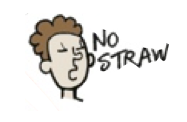
They are going beyond the simple mantra of ‘Reducing, Reusing, Recycling’ and now are refusing to consume single use disposable items (e.g. cups, cutlery, straws and bags) as part of the Plastic Free July Challenge.
Do you really need to put your bananas in a plastic bag?
Is that plastic straw that you’ll use for a few minutes really necessary?
And do you seriously need to double bag your meat?
Hang on…do you need a bag at all?
“Oh but I use the bags as bin liners” I hear people say all the time.
But people who are living plastic free have no such excuses. They are exploring alternative ways to line their bins (click here for example), amongst other plastic free ways of living.
A lot of our behaviours are unconscious and automatic, but the whole point of the Plastic Free July is to disrupt our usual habits and become more aware of our consumption patterns.
So what can you expect when you deplastify your life?
When I made the decision to give up plastic, I was surprised by how much healthier, mentally stronger and creative I became. 
Have you ever noticed that most processed and unhealthy food comes in plastic packaging with a whole lot of additives and preservatives thrown in?
Biscuits. Chips. Lollies. You name it. They all come wrapped in plastic. Sometimes individually wrapped in plastic and then placed in a plastic bag.
By making the decision to deplastify your life, you automatically cut out these junk foods. You tend to steer clear of fast food places too because what does your food/drink usually come in? Plastic lined containers with little plastic packaged sauces thrown in.
Don’t get me wrong, cutting plastic from your life is no walk in the park. It takes something to refuse plastic in a world obsessed with convenience and cheap products. But the skills you learn and develop by taking on this challenge can help you to be stronger and more effective in any area of your life.
 For instance, plastic free living requires learning to cook from scratch with staple ingredients. If you don’t think you’re much of a cook, just remember that cooking is like any other skill, the more you do it the better you’ll get at it.
For instance, plastic free living requires learning to cook from scratch with staple ingredients. If you don’t think you’re much of a cook, just remember that cooking is like any other skill, the more you do it the better you’ll get at it.
As part of this years Plastic Free July challenge I organised a ravioli making session with friends. Not only did we produce a delicious meal but we had a wonderful afternoon together full of laughter and fun.
I’ve noticed that Plastic Free Living has also strengthened my self control and organisation skills. You see, they say self discipline is your number 1 success strategy and it can be strengthened through resisting the temptation to give into short term rewards.
Usually when you consume products wrapped in plastic you are opting for the quick and easy option of instant gratification. To resist this temptation, requires planning and thinking ahead “How can I do this differently?” and “What do I need to learn to be able to make this?”
So every time you resist taking the easy option (i.e. single use disposable plastic items) think of it as strengthening your self control muscle.
 The mind map above contains some ideas on how to kick the plastic habit once and for all. If you try to take on everything all at once, you’ll be setting yourself up for failure. Just take baby steps. Take on doing one thing and once you’ve got that sorted, take on something new.
The mind map above contains some ideas on how to kick the plastic habit once and for all. If you try to take on everything all at once, you’ll be setting yourself up for failure. Just take baby steps. Take on doing one thing and once you’ve got that sorted, take on something new.
Useful Resources
If you’re unsure about how to do something or need some inspiration, check out the resources below –
Plastic Free July website: Contains useful resources for cutting back on plastics in a range of areas.
Bag it movie: An environmental documentary on plastic. After watching it, you’ll never think about plastic in the same way again.
My Plastic Free Life: Beth Terry has been living plastic free for several years now and has created many informative posts on plastic free living.
At the end of the day, plastic free living requires taking a stand for the things that sustain us and are most important. Just remember, a healthy body is not possible without a healthy environment. So I invite you to deplastify your life.
Share This:
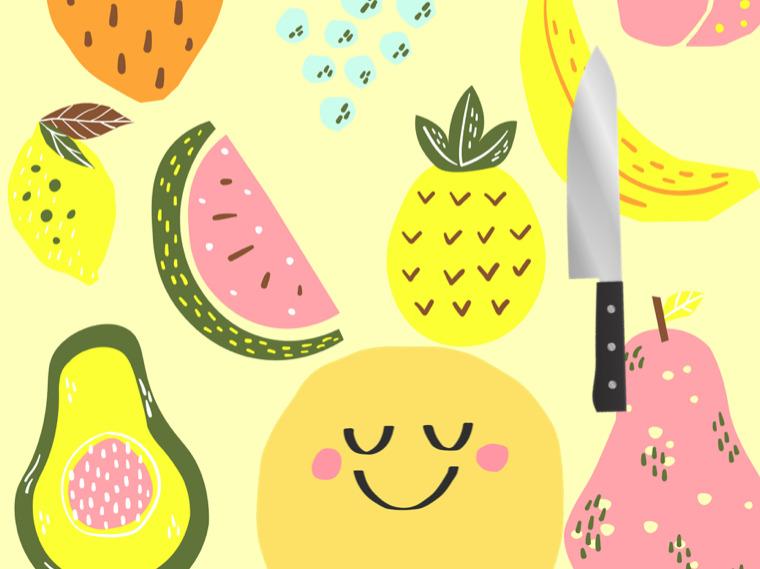
Over the years, I’ve experimented with a range of weird and wonderful stress-busting activities, including yoga, pilates, meditation classes, floatation tanks, massages, acupuncture, and sound healings (to name a few).
I’ll be the first to admit that cash-grabbing wellness gurus and advertisers have sucked me in.
In our capitalist culture, we’re sold this idea that in order to relax, we need to spend big dollars. But I now realise that the best relaxation experiences are cheap or free.
I’ve created rituals around cooking that help me stay calm, grounded, and focused throughout the day.
These days, cooking is my number one way to relax. My kitchen is my happy place, and it can be your happy place, too.
Perhaps this sounds a bit strange. But hear me out.
I haven’t always found cooking to be relaxing or particularly enjoyable.
Being half Italian, I used to get involved with the occasional food tradition, such as tomato sauce-making day. But it wasn’t like I grew up with the delicious smells of homecooked food wafting through the house.
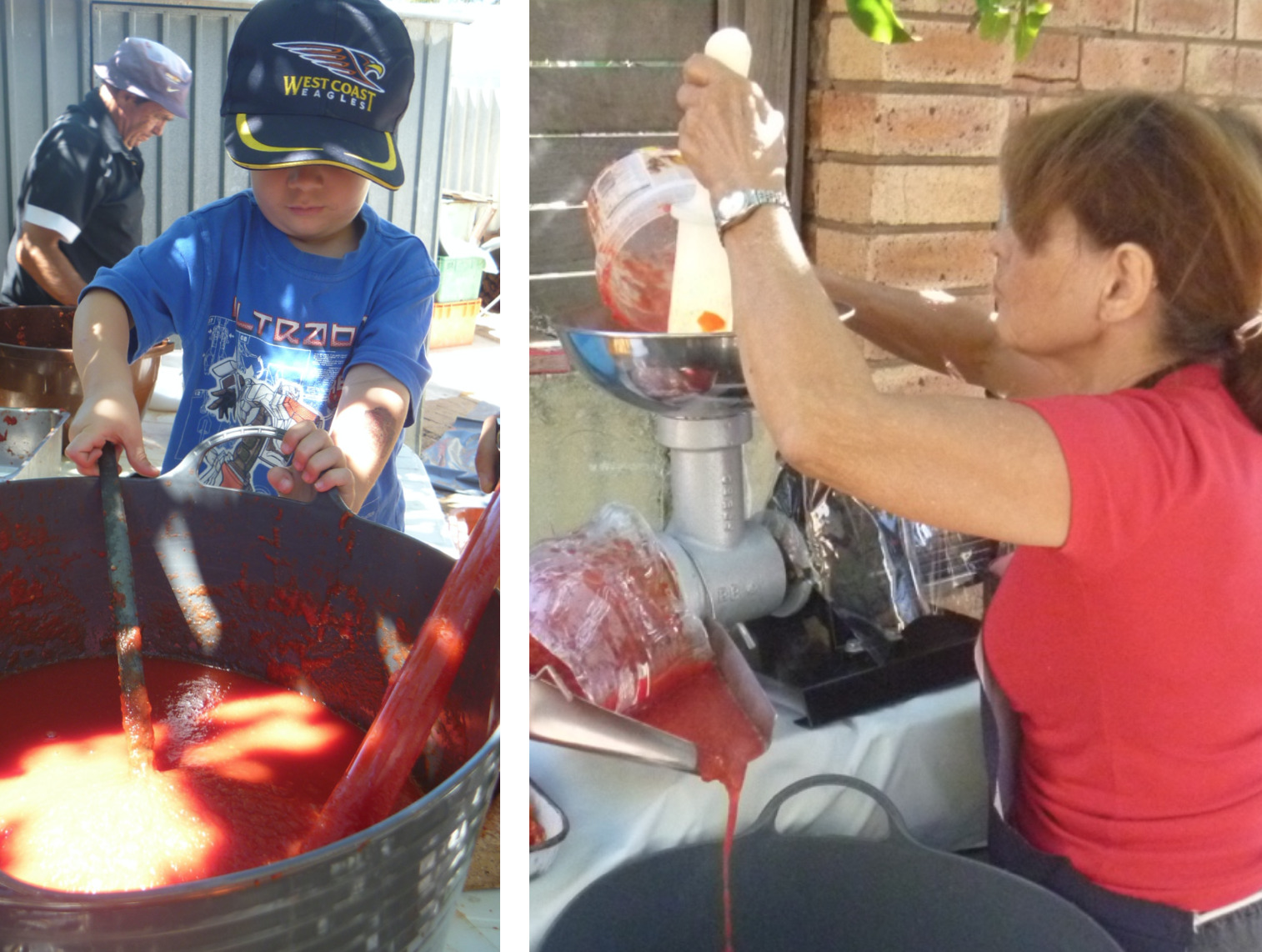
My teenage years and early twenties were filled with processed junk foods: a dizzying array of Hungry Jacks combos, greasy fish and chips, and takeaway meat lovers pizzas.
Cooking was a relaxation practice I stumbled upon much later in life.
Since upping my kitchen game and trading the expensive wellness activities for a sharp knife, solid chopping board, and fresh vegetables, my savings and confidence have grown.
To emerge from the kitchen in a calm and tranquil state, a few conditions have to be in place:
1. You cannot feel rushed
2. Your kitchen counter must be clean and clutter-free
3. You need a sharp knife to chop with
4. Your phone must be out of sight (like most things in life, it’s best not to multitask)
If these conditions are met, cooking can feel like a meditation or an empowering yoga class.
I’m not the only person who feels this way.
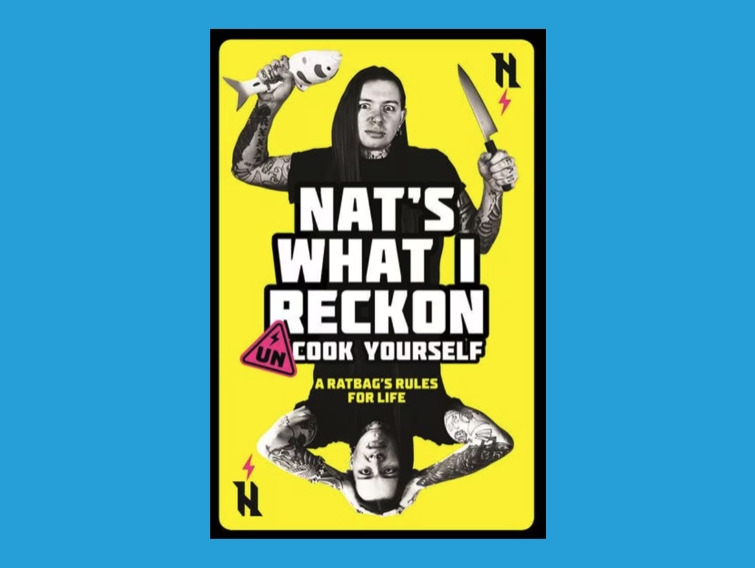
In the book ‘Uncook Yourself: A Ratbag’s Rules for Life’, Nat’s What I Reckon shares how he cooks his way through tough times. He writes:
“I reckon getting in the kitchen and un-cooking yourself from the tough moments in your head every now and then is a way better self-help routine than throwing five grand at some short-lived back pat from a cash grabbing blowhard at a self-help seminar just to tell you you’re not doing life right.”
One reason is you need to focus your mind.
When chopping with a sharp knife, you must pay attention to what you’re doing. If you get distracted, and I have (many times), you might pay the price with a cut to the finger.
Chopping is also a repetitive activity that delivers an immediate outcome. One minute, the bok choy is on the chopping board in full form; the next, it has been chopped and is ready for tonight’s stir-fry.
Cooking also requires you to slow down.
When you’re online, you tend to jump around in a frenzy. But when you’re cooking, you have to follow a recipe step-by-step. This requires focus. This focus helps to clear your mind.
Cooking also gives you a sense of control, power, and agency. As food journalist Michael Pollan says:
“Eating out breeds helplessness, dependence and ignorance, and eventually, it undermines any sense of responsibility.”
When you cook, you’re in control of the process (not some big corporate fast food company). Plus, compared to that commodified wellness experience, cooking is super cheap (all it costs is the price of a few ingredients).
It also produces a nourishing meal at the end. That meal will give you energy, help regulate your mood, and keep you calm and steady.
In the book ‘The Food Mood Connection’, Uma Naidoo argues that to decrease anxiety, you should pay attention to what you’re eating. She writes:
“A crucial part of battling anxiety is making sure your diet is full of foods that are calming and free of foods that put you on edge.”
Fast foods and highly processed foods. These foods (e.g., greasy hot chips and baked goods) are problematic because they lack fibre and the fragile micronutrients and phytochemicals needed for good brain health.
Naidoo recommends increasing your fibre intake by consuming more plants and whole foods, such as beans, brown rice, baked potatoes with the skin on, broccoli, pears, apples, and oats.
A few years ago, I delivered a talk called ‘Rediscovering the Ancient Art of Thrift’ at a local library. In my presentation, I shared the thrifty practice of avoiding eating out and cooking meals at home.
At this point in the presentation, an elderly gentleman put up his hand and said:
“But vegetables are expensive. Why not just get McDonald’s? It’s cheap, and there’s no cleaning up at the end.”
I immediately thought of a friend who, at the time, ate only McDonald’s (for breakfast, lunch, and dinner). His housemates had confided in me that his feet had developed a pungent odour.
Although my diet was far from perfect, I was concerned. If my friend kept going down this path, I could see him heading for serious trouble.
Fast forward a year: How was my friend doing?
He was not well.
He had put on a significant amount of weight and seemed depressed, rarely leaving his room except to get his next McDonald’s meal (back in those days, there was no Uber Eats).

I explained to this elderly gentleman in the library workshop:
“Maybe you’ll save a bit of time and money in the short term [buying the fast food], but eating processed food will cost you down the track. It will cost you in medical bills and poor health. Your quality of life will suffer.”
He nodded, but I could tell he wasn’t entirely convinced.
Until you’ve cut out the processed junk food, allowed a couple of weeks for your tastebuds to readjust, and developed the habit of home cooking, it’s easy to be sceptical. After all, we live in a world that values convenience. Opening an app, pressing a button, and having dinner delivered to your door in less than 20 minutes has some definite appeal.
But every time you order Uber Eats, you miss out on a valuable opportunity to practice slowing down and calming your mind. You also undermine your cooking skills.
If you haven’t developed the habit of cooking or cooking makes you feel anxious, there are a few simple things you can do to cultivate calm and confidence in the kitchen:
Cooking is a messy process. While I may start with a clean kitchen bench, it quickly becomes a mess. That’s how the process goes (I try to clean as I go).
It’s also okay to mess up a meal. Not every meal is going to be an absolute winner. In ‘The Four Hour Chef’, Tim Ferris encourages the reader to see meals that don’t work out as cheap cooking classes. Learn the lesson and move on.
When you think of cooking as one activity, it can feel overwhelming. I divide the cooking process into two stages:
1) Preparing the mise en place: chopping vegetables, taking out utensils, etc, and
2) Pulling it all together: cooking the dish.
In the morning, I take out all the ingredients for a dish so they are ready to go when I need to take a break from my work. I chop earlier in the day and cook the dish in the afternoon/early evening.

If I’m overwhelmed by the idea of chopping vegetables, I break it down to chopping just one vegetable at a time. I’ll say to myself:
“Just chop the capsicum. That’s all you need to do.”
It’s not fun chopping with a knife with a dull blade. A sharp knife combined with a lovely chopping board makes all the difference.
Learning basic chopping skills is a game changer. With the proper technique and a sharp knife, there’s no need to worry about cutting yourself. You can chop with ease.
I took a chopping skills course with the online cooking school Rouxbe, but you can find YouTube videos teaching you good chopping techniques.
You’re not running a restaurant. You don’t have to rush to get meals out to hungry customers. Take your time and enjoy the process of chopping each vegetable.
If approached with the right mindset, cooking can deliver a sense of calm and ground you in the present moment. You also get to experience the mental and physical benefits of a nourishing home-cooked meal. The bonus extra is saving a bit of money.
So, what are you waiting for? Pull out some ingredients and start cooking today.
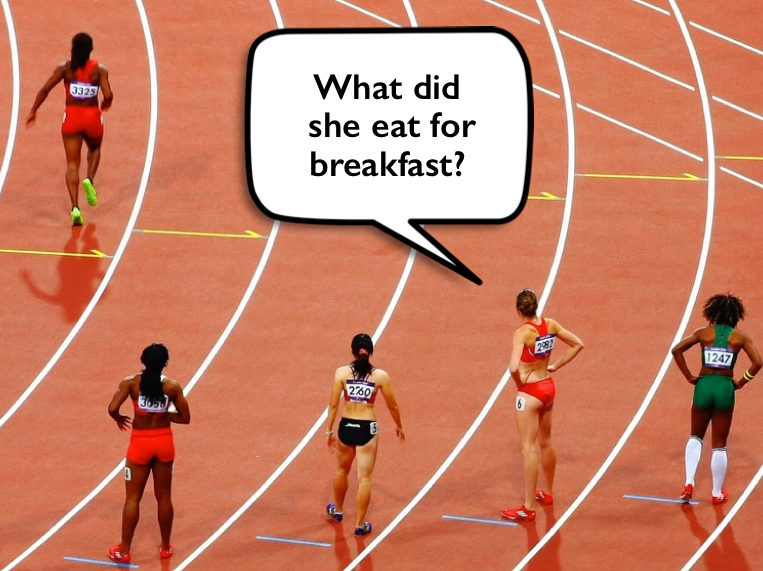
This means you need to prepare yourself mentally and physically for them.
You can work so hard to memorise large quantities of information for an exam, but if you’re not mentally and physically prepared, all that hard work can sadly go to waste.
When it comes time to take your exams, you have to relate to yourself as a professional athlete. Leading up to the day of the big performance (i.e. the exam), you need to eat nutritious food, be in the right frame of mind, manage your nerves, and allow your body to rest. These simple things can make all the difference to your exam performance.
You may be thinking “But isn’t this just common sense?”
It is! But creating healthy habits takes time and practice.
It’s one thing to intellectually know you should be eating well but it’s another thing altogether to incorporate healthy meals and snacks into your lifestyle.
I see a lot of students drinking energy drinks, getting very little sleep, and eating highly processed foods in the days leading up to exams. I have to admit, there was a time when I engaged in these behaviours too. I can tell you from personal experience, this is a recipe for mediocre grades and a miserable existence.
Here are my top 10 tips to prevent burnout and boost exam performance:
Sleep is critical to the learning process, exam performance, and wellbeing. Yet it’s usually the first thing students sacrifice to get more study done.
If you miss two hours of sleep each night for a week, the cognitive effects are as bad as going without sleep for two days straight!
Studies have also found that if you stay awake for 18 hours straight that’s like having a blood alcohol level of 0.05. In other words, it’s like being legally drunk. Your ability to focus, think, and learn will be seriously impaired.
You can’t adapt to getting less sleep. As adolescents, you need about 9-10 hours of sleep per night to be as alert as possible when you wake up.
If that feels unachievable, try to just get an extra 15 minutes of sleep tonight. Gradually increase this each night until you reach your target.
Often students stop exercising when they start preparing for exams. They think “I don’t have time to exercise!”. It’s as if they think they must spend every moment studying. Don’t fall into this trap.
Movement is your friend when it comes to studying for exams.
Research shows engaging in regular physical movement will help you to study more effectively. Firstly, it’s a great way to relieve stress and release feel good chemicals. Secondly, it gets the blood flowing more efficiently to your brain, which can give you a cognitive boost.
One study found students who engaged in 5 minute movement breaks every 17 minutes during a lecture retained more information and could focus better.
Every time you engage in a short movement break, you’re enhancing your study sessions.
Research has found that students who skip breakfast experience a decrease in cognitive performance and alertness compared to students who eat breakfast.
Eating a nutritious breakfast will give you a cognitive boost before an exam. It will also help you to feel fuller for longer, stabilise your mood, and give you plenty of energy to get through the exam.
Here are some healthy breakfast ideas:
Muesli or porridge with nuts and fresh fruit (e.g., berries) Wholemeal toast with a variety of toppings (e.g., baked beans, tomatoes, and avocado) and a piece of fruit A healthy homemade smoothie (click here for my brain boosting smoothie recipe)
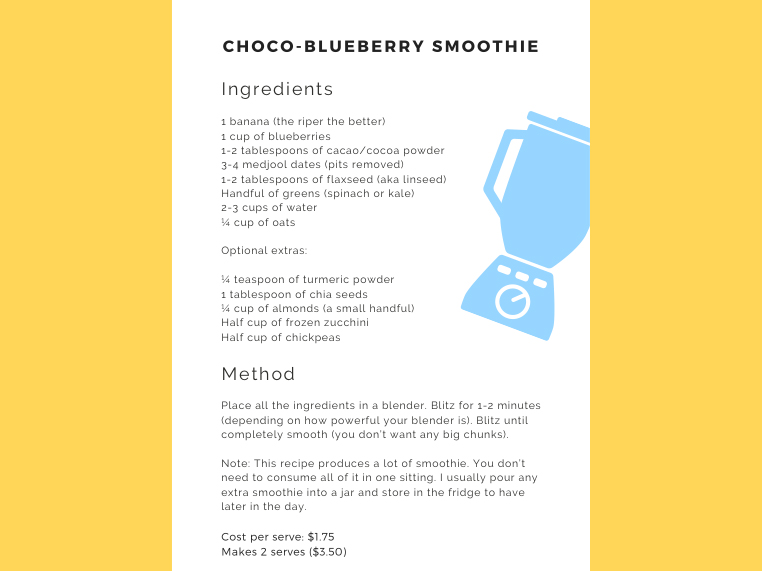
Your brain requires adequate hydration to function properly. Drinking water ensures that your brain receives the necessary fluids to perform tasks efficiently, such as retaining information and problem-solving.
Take regular sips of water as you study. It’s a good idea to have a glass of water or a reusable drink bottle within arms reach.
You may even want to create a tiny habit to remind yourself to engage in this simple behaviour (e.g., “After I finish answering a practice exam question, I will take a sip of water”).
Many years ago, I started thinking that my teachers and lecturers were out to get me. I thought they would mark me down wherever they got the chance. As a result of this distorted thinking, I became too scared to write anything in one of my first tests at law school. After receiving a terrible grade (5%), my brother said to me:
“Remember sis, your teachers want you to do well. They will try to give you marks wherever they can. It’s in their best interest to do so.”
Don’t worry about writing a perfect answer. If you’re unsure, be brave and still write something down. Even if it’s just a few dot points, it’s better than nothing. You may not get any marks for it, but your teachers won’t take marks off.
Just remember, most of the time your teachers are on your side and they want you to succeed. When you do well, it makes them look good.
Chances are there will always be something that you could have studied more thoroughly come the day of your exam. But on the morning of an exam, you can’t do much about that, so there’s no point worrying. Worrying will just deplete your finite energy, which you need to conserve for the exam.
Instead of worrying, try saying this to yourself before each exam:
“I now know so much more than I did before. I’ll be able to answer many questions in this exam.”
Telling yourself this positive micro-thought will allow you to enter the exam in a calm and confident frame of mind.
It’s normal to feel a bit nervous before an exam. But there are certain things and people that can push your anxiety levels into dangerous territory and impair your exam performance.
For example, coffee and energy drinks will skyrocket your stress levels. Similarly, hanging out with people who have a lot of nervous energy and are venting about the exam (“I’m going to fail!” and “I hardly studied!”) are going to leave you feeling distracted and a little jangled.
Before the exam, do your best to isolate yourself from these people. If you’re worried about offending someone who is venting to you, you could say “I’m sorry but I really need to do some last minute cramming”. Then proceed to pull out your notes and pretend to read them.
How many times have you stayed back after an exam to talk to your friends about what you put for each question? Have you ever felt terrible after doing this?
It can be reassuring to know that you wrote the same answer as your friends. But if you find out that you wrote something completely different, you may start to second guess yourself. If you have another four or five exams to go, this may throw you off your game.
This is why I don’t recommend engaging in a postmortem of the exam until you get your results/exam paper back.
When you walk out of the exam room, tell yourself:
“That exam is over. There’s nothing I can do to change how I went. It’s time to move on!”.
You could imagine yourself locking the exam in a box and throwing it off a cliff or rolling it up and stuffing it in a bottle and throwing it out to sea. The point is you need to mentally disconnect from that exam and focus on studying for the next one.

If you come across a question that you’re not sure how to answer, stop for a moment and take a few deep breaths (in for the count of 4 and out for the count of 4).
A simple breath activity you can try is the Box Breathing Technique. This involves imagining yourself breathing along the sides of a box (breathing in for the count of four on one side, out for the count of four on the next side, etc). Repeat this 2-3 times. Then take a look at the question again.
If you are still unsure how to answer the question, move on to another question.
The worst thing you can do is panic (remember, stress impairs your ability to think and recall information).
By engaging in Box Breathing, you can help yourself to remain in a calm and stable state.
Many of us are familiar with writer’s cramp. This can be caused by gripping onto your pen too tightly. Try loosening your grip a little.
Alternatively, experiment with a range of different pens. Some biros require you to press down hard on the page to make a mark, but not gel pens. The ink just flows onto the page!
The reality is, even with a good gel pen, your elbow will start to hurt at some point if you’re taking a 3 hour exam. When it does start to hurt, have a rest for a few seconds (yes, you have time to do this). Stretch your arm out. Shake it a little.
Treat each exam like a mountain hike rather than a 100 metre sprint. Resting for a few moments here and there will be time well spent and will enhance your overall performance.
These simple strategies can help to elevate your exam performance. My advice is to start small. Even if your exams are several weeks away, select one or two of these ideas and start testing them out today. At first, the strategies will require a bit of mental effort. But like anything in life, if you persevere they’ll become second nature to you and they’ll just be things you do without even thinking.
Want to learn more exam strategies? Click here to download a free copy of 70 ways to ace your exams.
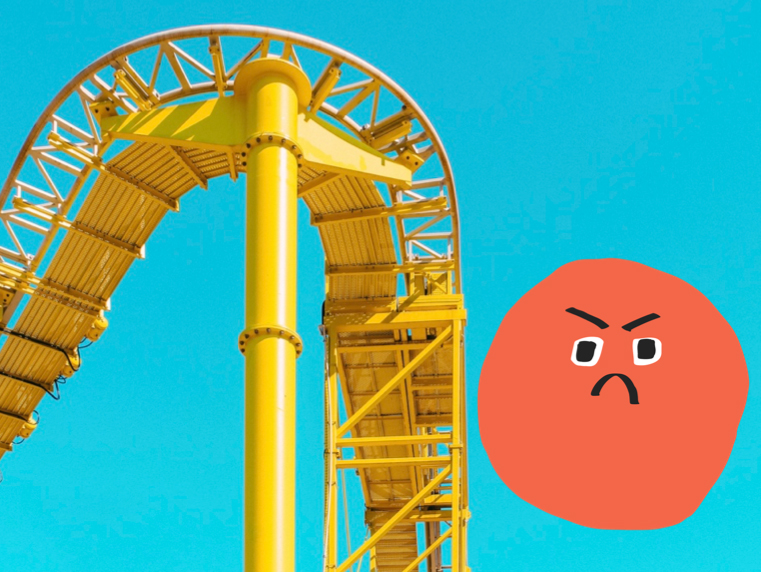
Do you ever get hangry?
Hanger is a combination of hunger and anger. When you’re hungry, you get angry.
And it’s not just in your head. A recent study found hanger is a real phenomenon.
In this study, researchers gathered data from 64 participants over 21 days. Every day the participants were asked to report their hunger, anger, irritability, pleasure, and arousal at five time-points.
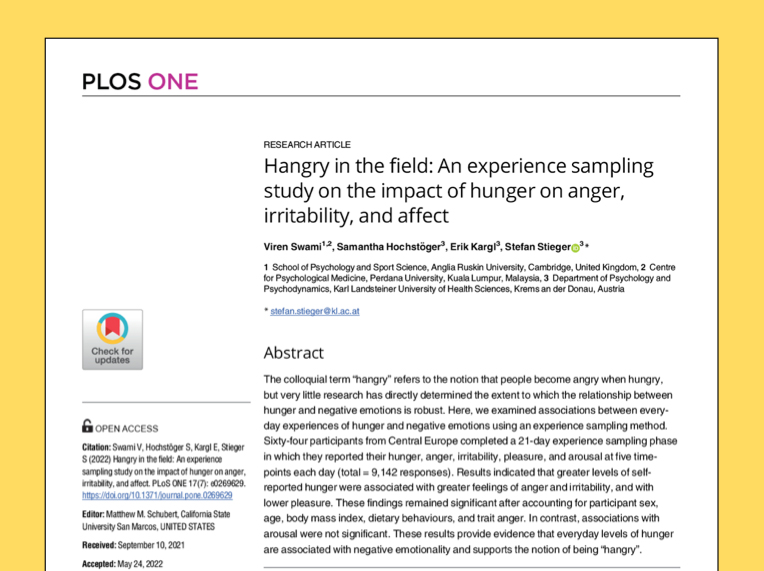
The researchers concluded:
“The results of the present study suggest that the experience of being hangry is real, insofar as hunger was associated with greater anger and irritability, and lower pleasure, in our sample over a period of three weeks.”
The researchers went on to state:
“Although our results do not present ways to mitigate against negative-hunger-induced emotions, existing research suggests that being able to label an emotion by putting feelings into words (e.g., “anger”) could help individual to regulate those emotions.”
In other words, if you are able to recognise that you’re hangry that gives you power. You can then decide to do something about it.
When I was in high school, I was always hangry. But there was no language for this state back then.
I also had no idea about healthy eating. So, when I became hangry, I felt confused. I didn’t know what was going on. I didn’t know what to do.
But knowing what I know now, I can see I was the maker of my own misfortune. Let me explain.
As a teenager, I’d start the school day with a big bowl of nutrigrain (i.e., a sickly sweet cereal). Since iron men were plastered all over the cereal box, I foolishly believed that this was a highly nutritious breakfast.
By 10am, my stomach would be rumbling at max volume in class, which usually always coincided with silent reading.
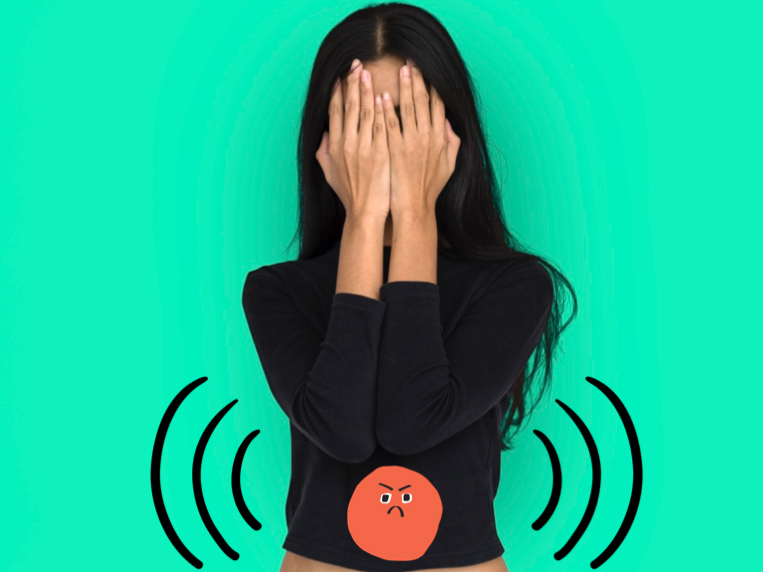
This left me feeling embarrassed, highly irritable, and distracted (I was more focused on my noisy stomach than on my textbook).
Recess would arrive and I’d eat a packet of potato crisps or an Uncle Tobys Le Snak (i.e., a pre-packaged combo of cheesy spread and crackers).
On the menu for lunch was a sausage roll or meat pie packed full of mystery meats.
Then I’d come home and eat another bowl of sugary cereal as a snack.
Vegetables and fruit were more like ‘sometimes/occasional’ foods than a significant part of my diet.
You don’t need to be a nutritionist to see why I felt hangry all the time. I was eating high GI foods that contained little to no fibre.
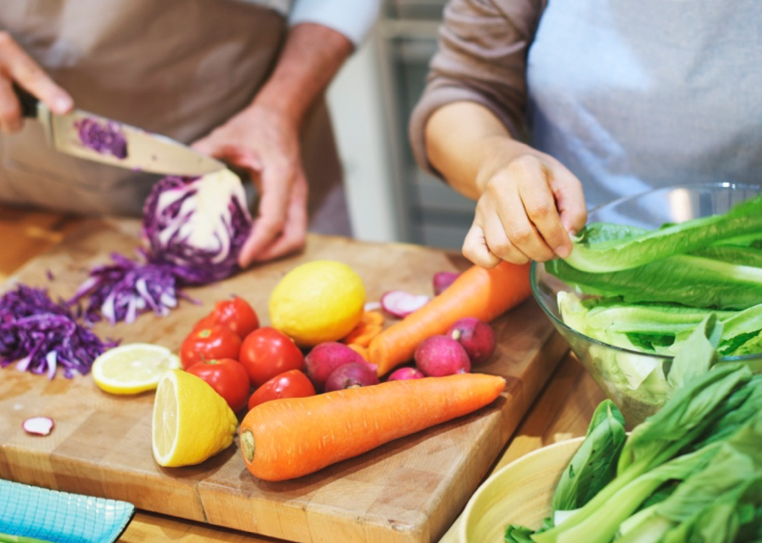
When I hit my thirties, I realised I had to improve my diet. Over the course of a year, I studied plant-based nutrition through eCornell University and participated in online culinary school.
All of this training was time and money well spent.
Not only did I learn how to cook with plants and wholefoods, but I learnt how to eat for optimal brain power and keep hanger at bay.
If you find yourself getting hangry, I want you to know that you can learn to eat in a way that leaves you feeling satisfied and able to focus in class.
Here are my top tips for preventing and handling hanger when it strikes:
What foods fill you up and keep you satisfied? Foods that are packed full of fibre.
High fibre foods include:
• Vegetables
• Fruits
• Wholegrain foods (e.g., brown rice, oats, wholemeal pasta, and wholemeal bread)
• Legumes (e.g., lentils, kidney beans, and chickpeas)
• Nuts (e.g., almonds, cashews, and walnuts)
• Seeds (e.g., sunflower and pumpkin seeds)
You won’t find any fibre in eggs, dairy, and meat (note: the grisly tough bits in meat are fat, not fibre). You also will find little to no fibre in processed cereals and junk foods.
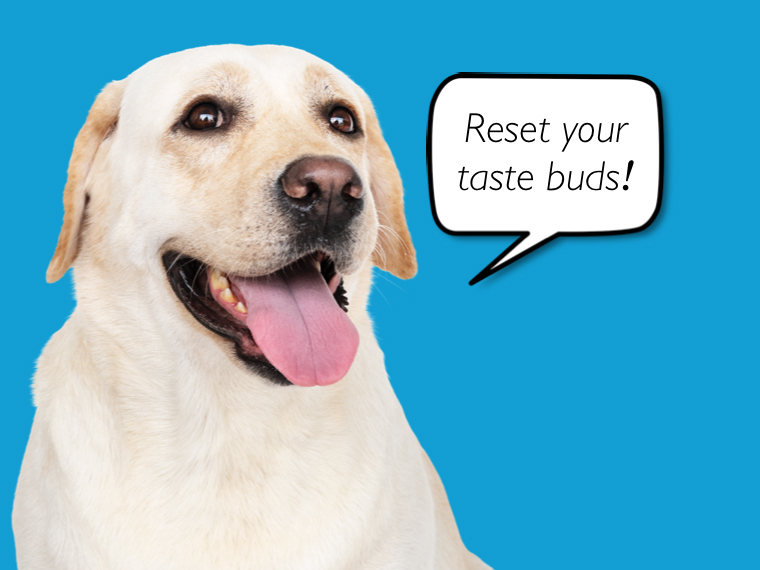
Not a fan of fruits and vegetables? Never fear.
Here’s a fun fact: your taste buds repopulate every 10 days.
This means you can retrain your palate to prefer the subtle flavours of healthy, high fibre foods.
Challenge yourself to stop eating processed junk food for two weeks and see what it does to your food experience. This was a game changer for me!
I have a motto: “Always carry healthy snacks”.
If I have a little pack of healthy snacks when I head out on the road to present, I know I’m going to be okay.
What do I put in my snack pack?
Usually nuts, veggie sticks, and chopped up fruit.
I tend to steer clear of potato chips, cakes, and biscuits as these foods don’t leave me feeling full or particularly good.
Occasionally, I’ll forget my snack pack. When this happens and hanger is about to strike when I’m out presenting at a school, I have a plan that I execute immediately following the presentation: I drive to a Subway or Zambrero store (whichever is closest).
I know exactly what I will order at these places:
Subway – Veggie delight sub with avocado (no cheese)
Zambrero – Bean burrito with half the rice and lots of salad (no cheese)
Deciding on what I’m going to order well in advance means I am less likely to make poor food choices when my willpower hits rock bottom.
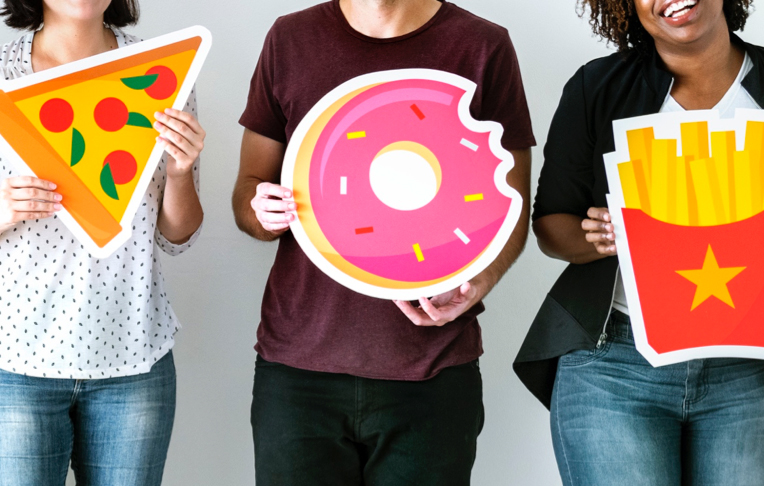
High GI foods (e.g., white bread, white potato, white pasta, and cakes) create a surge in glucose in your blood. Whilst you need glucose to function, too much glucose all in one hit overwhelms your body, particularly your brain. You’ll have a sugar high, but it will be followed by a low. That low is usually hanger.
Here’s the dilemma . . . .
When hanger strikes as a result of consuming high GI addictive foods, you’re more likely to make poor food choices. When you’re having a hanger melt down, you’re not going to be reaching for carrot sticks or broccoli. You’ll be reaching for foods that give you another blast of dopamine. You end up in a vicious cycle (Eat addictive junk > Hanger > Eat addictive junk).
This doesn’t mean you need to cut out all high GI foods though. Professor Jennie Brand-Miller and her colleagues state in the New Glucose Revolution series:
“High GI foods such as potatoes and wholemeal bread make a valuable nutritional contribution to your diet, and when eaten with protein foods or low GI carbs the overall GI value of the meal will be about medium.”
I know you’ve heard this a million times before but breakfast really is the most important meal of the day. But most people are saying “Bring on the hanger!” by starting the day with Rice Bubbles, Coco Pops, and jam on white bread.
These breakfasts are devoid of fibre and are high GI. In other words, they’re quickly digested and cause a spike in blood sugar levels (cue rumbling stomach).
Swap the processed, sugary breakfasts with one of the following high fibre breakfasts:
• Baked beans (low in salt and sugar) on wholemeal bread
• Tofu scramble
• My favourite choco-bluberry smoothie
• Overnight oats

Lentils and beans have been shown to have magical properties. Meals containing beans can delay the return of hunger (making us feel fuller for longer). Studies have also shown consuming beans creates something called “The Second Meal Effect”. Dr Michael Greger explains this effect as follows:
“Eat lentils for dinner, and eleven hours later, your body reacts differently to breakfast. Even when made to drink straight sugar water the next morning, your body is better able to handle it.”
In other words, eating a meal containing beans or lentils will lower the GI index of the next meal you eat. For example, if you have a bean burrito for lunch and a few hours later you eat a piece of chocolate cake, your blood sugar levels won’t spike as much (thanks, beans!). Pretty amazing, right?
We know that hanger is real, but it’s not something you need to struggle with. By making a few simple tweaks to your diet, you’ll be amazed at how certain foods can help stabilise your mood and leave you feeling fuller for longer.
Dr Jane Genovese delivers interactive sessions on learning to learn, combating procrastination, exam preparation, how to focus in the age of distraction, habit formation and much, much more!
Get FREE study and life strategies by signing up to our newsletter:
© 2024 Learning Fundamentals